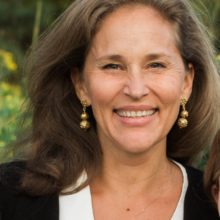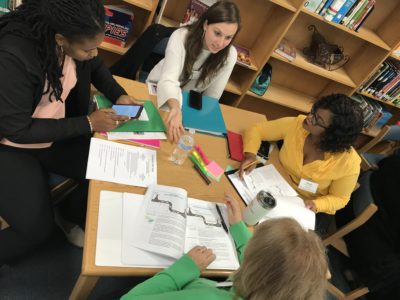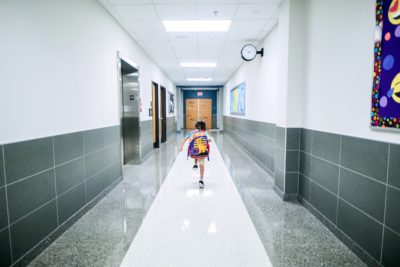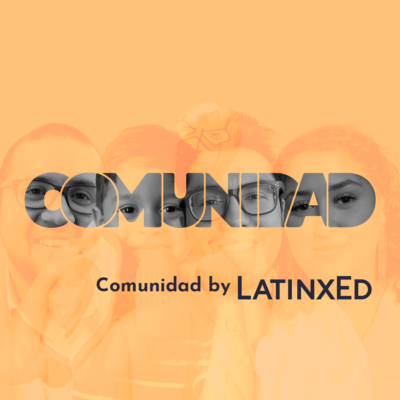

My days as a classroom teacher were never boring. Everywhere I worked, there were sharp, dedicated teachers (really, teachers are the best!) and curious, complex students (every single one of them). They all made going to work each day great fun. And yet, even with outstanding teachers and fabulous kids, every school had a much smaller senior class than freshman class year after year, a set of students who seemed to be sent to the principal’s office a lot, some students who had trouble getting to school regularly, and some students whose report cards probably did not get hung on refrigerators as sources of pride. This happened in every school.
I did not know then that those signs — poor attendance, behavior challenges, and poor course performance — are research-based predictors of kids who disengage and then don’t graduate on-time or at all. I did not know that as early as the first quarter of kindergarten, these indicators tell us which students are off-track, in plenty of time for us to help remove barriers and get them back on track for graduation and for choice-filled lives.
Today, public schools across North Carolina have the chance to join a network of schools collaborating to do just that: reduce the number of students with these research-based early warning signs in attendance, behavior, and course performance. The application, open to any K-13 public school in North Carolina, is available here and is open until September 2. Schools that join the network will receive three years of professional learning support designed to build the capacities of participants to solve problems in their local context. More information on the partnership can be found here.
In 2018, the General Assembly appropriated funds for Schools That Lead to launch an improvement network for K-13 schools across the state focused on reducing the number of students with course failure, chronic absences, and discipline issues. In 2021, after seeing positive results from the first 50 partner schools, the General Assembly extended that funding for an additional five years ensuring that Schools That Lead will remain an effective and reliable partner for improvement for schools across the state.
We teach the principles of improvement science, which encourage educators to start small and gather practical data before making large-scale sweeping changes. We focus on early warning indicators (related to attendance, behavior, and course performance) that are closely linked to several student outcomes. Understanding the research, teachers can begin to identify the students in their classroom who will be off-track for on-time high-school graduation as early as kindergarten. By using our model, schools can make incremental changes to address these challenges and alter the arc of students’ performance. Then they can share data-driven solutions with their peers in their network, accelerating improvement statewide.
The Education Policy Initiative at Carolina (UNC-EPIC) conducted an independent three-year evaluation of Schools That Lead’s work with schools in North Carolina. Dr. Julie T. Marks, author of the evaluation, concluded: “Findings provide compelling evidence that Schools That Lead’s Networked Improvement Community is a strong model for school improvement, effectively addressing issues such as chronic absenteeism and poor course performance in schools. This evidence is present throughout findings around implementation, effectiveness, and impact.”
Over and over, we hear from our school partners how meaningful it is to work in a network of like-minded professionals — people who share the same aim and are committed to working together. One teacher-leader described her experience in the network: “[I am] actually observing and recording immediate positive academic, attendance, and/or behavioral results for students that need it the most. This is very empowering to me because I don’t have to wait for benchmarks, EOGs, or graduation to see that what I am doing for these students is moving them in the right direction!” And a principal: “Everyone here felt completely rejuvenated after meeting with Schools That Lead. I’ve never seen anything like it. Somehow you are always here at the very time I’m about to give up or feel like I want to quit and you make me remember that I can do this! I can’t tell you how much working with you both means to me! Priceless!”
Like-minded. Empowering. Rejuvenating. This network would have undoubtedly made me a stronger teacher and a stronger leader in my schools. But even more, it would have systematically helped my schools center students on the margins, better understand what was getting in their way, and make changes that led to their improved outcomes. Doing that in partnership with other schools around the state, learning together, would help us all accelerate those improvements. If that sounds like work you’d like to do, come join us! We will improve student experiences and outcomes together.




